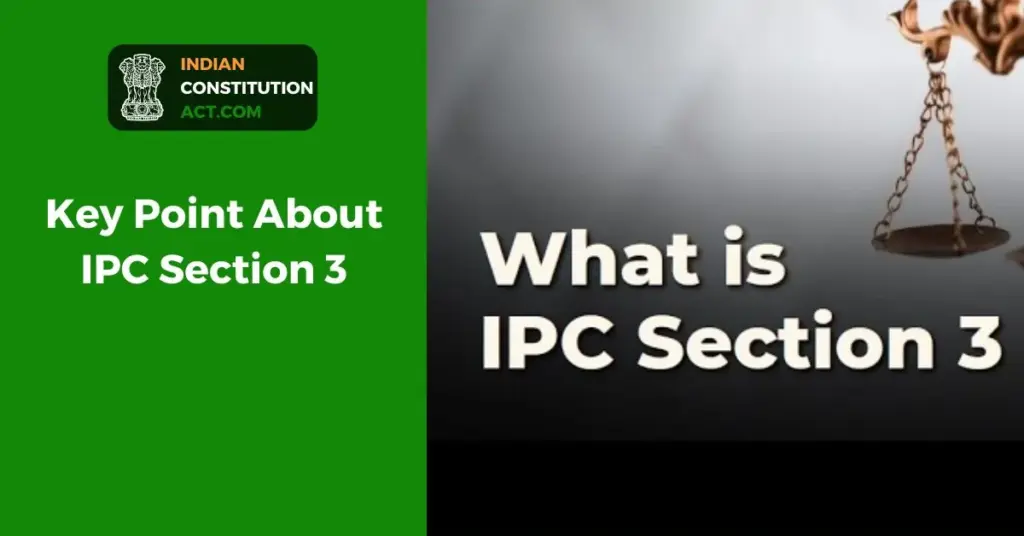Section 3 of the IPC is connected to crimes executed outside India. But as per Indian law, the accused will be punished under the Indian law. The punishment for those illegal acts outside the country is decided under Section 3 IPC. We have provided brief information regarding the 506 constitutions of India below. Let’s continue…
Table of Contents
What Is Section 3 Of The IPC
Anyone commits a crime outside India but is linked to India. Then he/she will get punishment according to IPC 3. And if anyone performs any illegal activity within the country, he/she will be punished under Section 2 IPC. As per the definition of the IPC, Section 3 states that if someone has executed an offense outside India and is qualified for trial according to any Indian law, then such a case will be disposed of according to the provisions of Section 3 of the IPC in the same way as if that crime was committed within India.
Explaining Section 3 IPC With Example

Example 1: If an Indian Army officer executes murder in Sri Lanka while serving for the Indian government. So he will be punished for murder, but legal action will be taken against him in India also.
Example 2: If any Indian citizen commits a crime in another country. Even if it is not considered a crime in the country, even then the person will be punished under Indian laws. All criminal charges & formal examination will be made as per the Indian constitution.
Also read: What Is Section 506 Of The Indian Penal Code (IPC)?
Key Point About IPC Section 3

Definition of Section 3 of the IPC: The Indian Penal Code applies to every citizen of India, who performs any offense that comes under Indian law. He/she is liable for trials in India as well.
Extraterritorial Application: As we have already informed you Section 3 of the IPC undertakes the crime which is performed outside the country. Section 3 permits the Indian Penal Code to have control over the crimes executed outside India. It ensures that specific crimes executed in another country can be officially charged somebody with a crime in India.
Legal Consistency: Indian Penal Code Section 3 makes it clear that whatever crime any person commits outside India, he will get the exact punishment as if he had committed that crime in India.
Jurisdiction: This section proves and clarifies that India has the right that if any of its citizens commits a crime, then India will have the right to punish him.
Purpose: The biggest reason for keeping this section is that if a person goes to another country and commits a crime that is not a crime for that country, even then India will punish that person as per its Indian law.
Application: This section is used for very serious crimes such as acting as a swindler, committing an illegal act, or promoting terrorist activity. It is not that this section is not valid for other crimes.
| Category of Bare Act | Name of the Act | Year of Promulgation |
|---|---|---|
| Criminal Laws | Indian Penal Code | 1860 |
| Act Number | Enactment Date | Chapter Number |
| 45 | 06.10.1860 | 1 |
| Chapter Title | Sub-Chapter | Legislated by |
| Introduction | – | Parliament of India |
Does IPC Section 3 apply to foreigners?
Yes, Section 3 of the IPC applies to anyone who performs criminal activity within Indian law. It does not depend on the individual age, gender, rank that an individual holds, etc. According to Section 2 of IPC, each individual or a person who belongs to another country is also liable for the act which is an offence under the Indian Panel Code.
